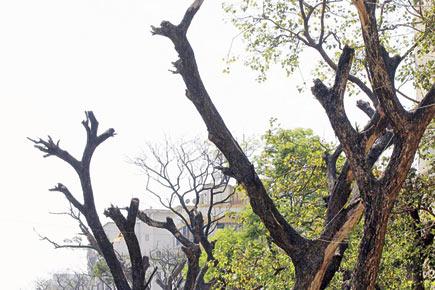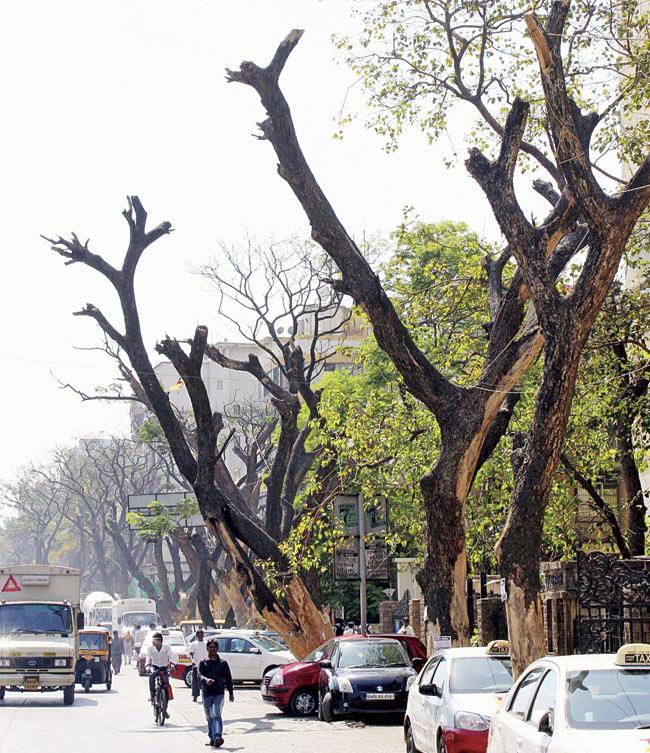The Accenture employee surveys 611 trees across western suburbs on foot over two months, to come to the disturbing conclusion that half of them are dead or dying

This could, and should, put the Brihanmumbai Municipal Corporation (BMC) to shame. While city’s civic body has done nothing to save the dying rain trees lining some of the major roads in Mumbai over the past six to eight months, Kshitij Ashtekar, a senior manager at Accenture, has come to their rescue.
ADVERTISEMENT

Dying Rain trees that line Link Road in Malad (West). Pic/Amit Jadhav
Ashtekar conducted an independent survey of the Rain trees at various arterial roads in the western suburbs, on foot. Ashtekar prepared a detailed report on the survey and presented it to senior BMC officials a few days ago, who then agreed to work on the measures suggested by him, to save the dying trees.
Ashtekar said, “I was very concerned about the state of the dying Rain trees, which provide the highest percentage of green cover to the city. I conducted the survey on weekends, examining 50-80 trees at a time. I mapped about 611 trees for four to five weeks in December and January, working only on weekends, as I work on weekdays.”
Ashtekar learnt that the trees growing on the side of concrete roads were dying because concrete was not allowing rainwater to seep in and reach their roots. “I also found that there was heavy infestation of pests like mealy bugs and amphids. Another factor is the heavy construction activity in Mumbai, with deep excavations.

Water pumped out of these construction sites, which contains cement concrete particles, is collected in the storm water drainage. At some paces the trees were dying because of fungal and bacterial infections. It is hard to pinpoint one reason, but normally it is a combination of these reasons playing out,” he added.
The study points out that Rain trees that are on open grounds are still doing well, unless infected. The survey has also revealed that 50 per cent of the trees he surveyed are infected and dying, or already dead. “This is very alarming, given that the rain trees provide the largest percentage of green cover in the city,” Ashtekar pointed out.
 Subscribe today by clicking the link and stay updated with the latest news!" Click here!
Subscribe today by clicking the link and stay updated with the latest news!" Click here!






